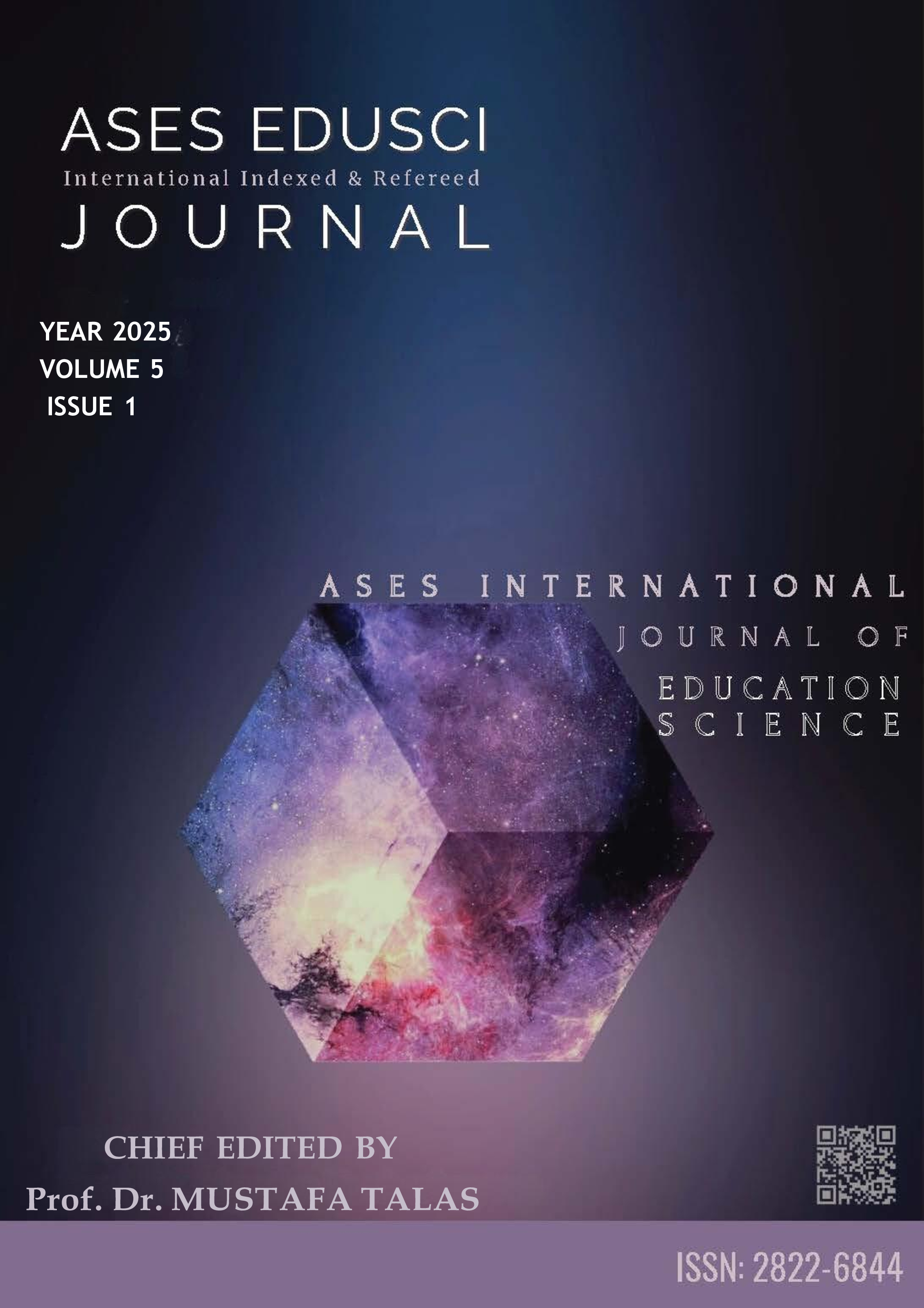Okul Öncesi Eğitimde Yeşil Algoritmalar: Geleceğin Sıfır Atık Çocukları
DOI:
https://doi.org/10.5281/zenodo.15718813Anahtar Kelimeler:
Okul Öncesi, Doğa, Biyoçeşitlilik, Sürdürülebilir Kalkınma HedefleriÖzet
Okul öncesi dönem, çocukların hem duygusal hem de bilişsel becerilerini geliştirdiği, çevreleriyle etkileşime girdikleri çok önemli bir aşamadır. Bu süreçte çevre bilincinin aşılanması, çocukların bireysel gelişimlerini pekiştirirken, toplumsal sorumluluklarını da artırabilir. Çevreye duyarlı bireylerin yetiştirilmesi, sürdürülebilir bir geleceğin temellerini atmak açısından kritik bir öneme sahiptir. Doğa ve biyoçeşitlilik konuları, çocuklara doğanın korunması ve ekosistemlerin sağlıklı kalmasının gerekliliğini anlatmada önemli bir rol oynar.
Bu araştırma, okul öncesi dönemde çocuklara çevre bilincini kazandırmayı ve geri dönüşüm gibi sürdürülebilir alışkanlıkları öğretmeyi hedefleyen bir projeyi ele almaktadır. 5-6 yaş grubundaki çocuklarla yapılan bu projede, ailelerin de sürece katılımı büyük bir önem taşımıştır. Ailelerin projeye dahil olması, çocukların öğrendiklerini pekiştirmelerini ve çevre dostu davranışları günlük yaşamlarına entegre etmelerini sağlamıştır.
Çalışma, 2022-2024 yılları arasında Eylül-Mayıs dönemi boyunca gerçekleştirilmiştir. Çalışmada veri toplama yöntemleri olarak çocuklarla yapılan birebir görüşmeler, gözlem teknikleri ve resimlemeler kullanılmıştır. Proje süresince, çocukların çevre bilincinin arttığı ve çevre dostu alışkanlıklar kazandıkları gözlemlenmiştir. Aynı şekilde, ailelerin geri dönüşüm ve diğer çevreye duyarlı alışkanlıklar konusunda daha bilinçli hale geldikleri tespit edilmiştir.
Projede, çocuklara atıkların ayrıştırılması, organik atıkların kompost yapımında kullanılması ve geri dönüştürülebilir malzemelerle yaratıcı faaliyetlerin yapılması gibi uygulamalar sunulmuştur. Örnek olarak, atık materyallerden oyuncak yapımı ve geri dönüştürülebilir malzemelerle el sanatları çalışmaları gerçekleştirilmiştir. Bu etkinlikler, çocuklara çevreye duyarlı düşünme becerisi kazandırmanın yanı sıra doğa dostu alışkanlıklar edinmelerine de katkı sağlamıştır. Ayrıca, su tasarrufu ile ilgili olarak aileler, çocuklarıyla birlikte çeşitli yöntemler geliştirmiştir.
Araştırmanın bulguları, proje katılımcılarının çevresel sorunlar hakkında daha fazla farkındalık geliştirdiklerini ve günlük yaşamlarında çevre dostu davranışlar sergilemeye başladıklarını göstermektedir. Katılımcılar, doğadaki biyoçeşitliliğin korunması ve ekosistemlerin sağlıklı kalması gerektiği konusunda bilinçlenmişlerdir. Ayrıca, evde organik atıkların kompost yapılarak değerlendirilmesi ve kimyasal gübre kullanımının azaltılması gibi çevre dostu uygulamalara yönelmişlerdir.
Araştırmanın sonucunda çocukların ve ailelerinin çevre bilincini artırmayı başarmış, çevre dostu yaşam alışkanlıklarını benimsemelerini sağlamıştır. Ailelerin projelere aktif katılımı, çevre bilincinin kalıcı hale gelmesinde etkili olmuştur. Gelecekte daha sürdürülebilir bir toplum oluşturabilmek için okul öncesi eğitimde çevre dostu projelerin yaygınlaştırılması büyük bir önem taşımaktadır.
Referanslar
Berthelsen, D., & Brownlee, J. (2005). Early Childhood Education: The Need for a Holistic Approach. International Journal of Early Childhood Education, 11(1), 35-50.
Chawla, L. (1999). Life Paths into Effective Environmental Action. Journal of Environmental Education, 31(1), 15-26.
Cohen, L., Manion, L., & Morrison, K. (2011). Research methods in education (7th ed.). Routledge.
Karasar, N. (2012). Bilimsel araştırma yöntemi: Kavramlar, ilkeler, teknikler (22. baskı). Nobel Yayıncılık.
Palmer, J. A. (1998). Environmental Education in the Early Years: The Role of the Teacher. Environmental Education Research, 4(2), 145-159.
Piaget, J. (1973). To understand is to invent: The future of education. Grossman.
Wilson, R. A. (1996). Environmental Education in Early Childhood: The Role of Teachers and Parents. Journal of Environmental Education, 27(2), 8-15.
Vygotsky, L. S. (1978). Mind in society: The development of higher psychological processes. Harvard University Press.
Yıldırım, A., & Şimşek, H. (2016). Sosyal bilimlerde nitel araştırma yöntemleri. Seçkin Yayıncılık.
İndir
Yayınlanmış
Nasıl Atıf Yapılır
Sayı
Bölüm
Lisans
Telif Hakkı (c) 2025 ASES EDUSCI (INTERNATIONAL JOURNAL OF EDUCATIONAL SCIENCES) ISSN: 2822-6844

Bu çalışma Creative Commons Attribution-NonCommercial 4.0 International License ile lisanslanmıştır.


